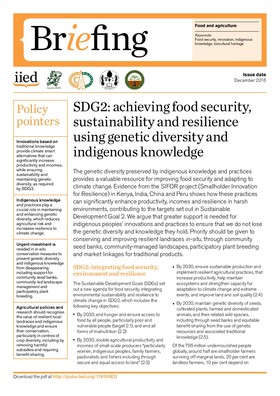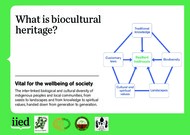SDG2: achieving food security, sustainability and resilience using genetic diversity and indigenous knowledge

The genetic diversity preserved by Indigenous knowledge and practices provides a valuable resource for improving food security and adapting to climate change. Evidence from the SIFOR project (Smallholder Innovation for Resilience) in Kenya, India, China and Peru shows that crop and farming innovations based on traditional knowledge and crops - or biocultural heritage - can significantly enhance productivity, incomes and resilience in harsh environments, contributing to the targets set out in Sustainable Development Goal 2.
We argue that greater support is needed for Indigenous peoples’ innovations and practices to ensure that we do not lose the genetic diversity and knowledge they hold. Priority should be given to conserving and improving resilient landraces in-situ, through community seed banks, community-managed landscapes, participatory plant breeding and market linkages for traditional products.
Cite this publication
Available at https://www.iied.org/17410iied






